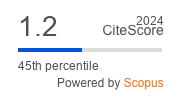Study of Morphology of Sorption Substances
https://doi.org/10.33380/2305-2066-2019-8-2-33-37
Abstract
Introduction. Substances with sorption properties can be used to create transport drug systems, in which the main mechanism of binding, transport and release of the drug molecule is sorption. The sorbent in this case acts as a carrier of the drug molecule, followed by its delivery to the destination by desorption. One of the ways to study the processes of sorption-desorption in transport drug systems is the study of the morphology of the sorption substance. Therefore, the morphological analysis of sorption substances is important, including the size, shape, and spatial organization of their structural elements.
Aim. The study of the morphology of sorption substances.
Materials and methods. The materials of the study are active coal, silicon dioxide, povidone, dioctahedral smectite, kaolin and montmorillonite clay. The methods is scanning electron microscopy.
Results and discussion. The scanning electron microscopy of objects was carried out using segmentation of elements as subsystems, inside of which the morphological description does not penetrate. It was established that for coal of active and silicon dioxide, the segmentation of elements is represented by three levels of organization; for povidone, smectite, kaolin and montmorillonite clay, the segmentation of elements is represented by two levels of organization. The morphology of the objects was investigated. It is established that the studied substances are microstructural objects. Porosity in samples of active coal, smectite dioctahedral, kaolin, montmorillonite clay was determined. In samples of silicon dioxide and povidone porosity is absent.
Conclusion. Morphological analysis of sorption substances allowed us to develop classification of the possible interaction of the carrier substance with the drug molecule in the transport drug system. The materials under study are divided into two groups according to porous characteristics: group 1 – porous substances – sorption interaction in pores (active coal), sorption interaction in pores and by ion exchange (smectite, montmorillonite clay), sorption in secondary pores and through oxygen and hydroxyl centers (kaolin); group 2 – non-porous substances – sorption on oxygen centers (silicon dioxide), sorption by means of complex formation (povidone). The prospect of further research is the modeling of porosity and sorption interaction of the carrier substance with the drug molecule in the drug transport system.
About the Authors
A. V. BondarevRussian Federation
Department of pharmaceutical technology
E. T. Zhilyakova
Russian Federation
Department of pharmaceutical technology
N. B. Demina
Russian Federation
Department of pharmaceutical and biomedical technology
V. Y. Novikov
Russian Federation
Department of pharmaceutical technology
References
1. Novik E. S., Dorenska A. V., Borisova N. A., Gunar O. V. Estimation of the size and shape of particles of pharmaceutical substances by a microscopic method. Successes of Modern Science. 2016; 11-2: 249– 255 (In Russ.).
2. High-performance technologies for measuring the shape and size of particles in the development and quality assurance of solid dosage forms. Pharmaceutical Industry. 2013; 3(38): 96–100 (In Russ.).
3. State Pharmacopoeia of the Russian Federation. 13th ed. T. 1. OFS.1.2.1.0009.15 «Optical microscopy». Available at: http://femb.ru/feml (In Russ.).
4. Emshanova S. V., Abramovich R. A., Potanina O. G. The influence of the shape and size of the particles of substances on the quality of finished medicines. Drug Development & Registration. 2014; 7: 45– 63 (In Russ.).
5. Zhilyakova E. T., Novikov O. O., Bondarev A. V., Frolov G. V. Determination of technological and adsorption parameters of medical clays. Scientific Bulletins of Belgorod State University. 2013; 18(161): 229–234 (In Russ.).
6. Zhilyakova E. T., Bondarev А. V., Bojko N. N., Naplekov D. K. Physical research of porosity of mineral sorbents. Journal of International Pharmaceutical Research. 2018; 45: 477–480.
Review
For citations:
Bondarev A.V., Zhilyakova E.T., Demina N.B., Novikov V.Y. Study of Morphology of Sorption Substances. Drug development & registration. 2019;8(2):33-37. (In Russ.) https://doi.org/10.33380/2305-2066-2019-8-2-33-37









































